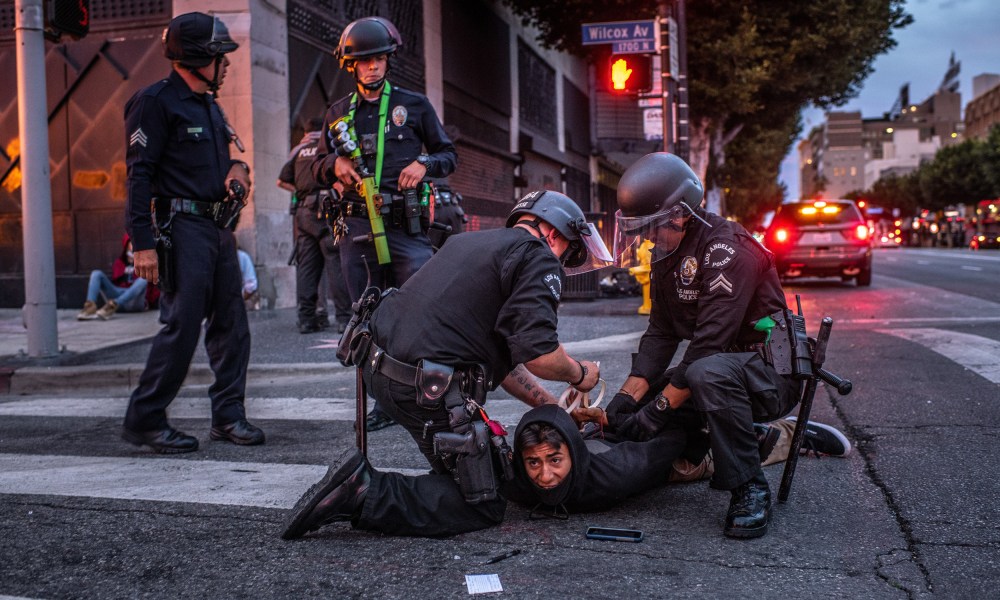About seven years ago, Roxanne Torres was approached by police officers in a New Mexico parking lot. The officers were searching for a suspect but were not, in fact, looking for Torres.
The decidedly conservative U.S. Supreme Court just came out with a ruling on Torres’ case that may sound, well, decidedly liberal.
Torres was going through methamphetamine withdrawal at the time and alleges that she believed the police officers were carjackers so she tried to drive away. Many of the facts in the case are in dispute, but at some point, two officers fired at her more than a dozen times and hit her twice in the back.
Torres eventually made her way to a hospital and was later arrested. She pleaded no contest to a number of crimes, including fleeing from a police officer, but she also filed a lawsuit against the officers, contending they used excessive force and that the shooting amounted to an unreasonable seizure under the Fourth Amendment.

The decidedly conservative U.S. Supreme Court just came out with a ruling on Torres’ case that may sound, well, decidedly liberal, by concluding the shooting could amount to a seizure.
In this ruling, Chief Justice John Roberts, joined by his conservative colleague Justice Brett Kavanaugh and the court’s three liberal judges (Justices Stephen Breyer, Sonia Sotomayor and Elena Kagan) arguably broadened the ability to sue police officers for misconduct like use of excessive force.
It is impossible to talk about this case without acknowledging the fact that the decision is made against the backdrop of a country struggling with a buildup in the aftermath of incidents of alleged police misconduct.
While the opinions never used the words “racism” or “George Floyd,” the name of the 46-year-old Black man who died after an encounter with a white Minneapolis police officer, it is impossible to talk about this case without acknowledging the fact that the decision is made against the backdrop of a country struggling with a buildup in the aftermath of incidents of alleged police misconduct.
The court’s decision came out less than seven days before the trial begins against former police Officer Derek Chauvin, who is accused of murdering Floyd, whose death helped set off a summer of protests and a nationwide reckoning over issues of systemic racism and the criminal justice system.
And so we have our conservative chief justice, his conservative colleague and three liberal justices concluding that the “application of physical force to the body of a person with intent to restrain is a seizure, even if the force does not succeed in subduing the person.”
In plain English this means that, for example, if a police officer fires a gun and hits you while attempting to prevent you from fleeing, that constitutes a seizure under the Fourth Amendment of the Constitution, even if the gunshot doesn’t actually prevent you from fleeing.
Ultimately, this decision could mean fewer protections for police officers who use force to try to restrain civilians. And the flip side of fewer protections is more potential avenues for liability for police officers accused of wrongdoing. If the conduct above amounts to a seizure, then the police officer in that case can be sued for committing an unreasonable seizure.
Ultimately, this decision could mean fewer protections for police officers who use force to try to restrain civilians.
But let’s move from the land of hypotheticals to the facts of the actual case the Supreme Court ruled on: This means Torres wins her case against the police officers, right? Not exactly. In fact, probably not. The ruling means Torres gets to keep going in her case against the officers, but they get to raise defenses, like qualified immunity. This may be the most difficult hurdle for Torres to overcome.













